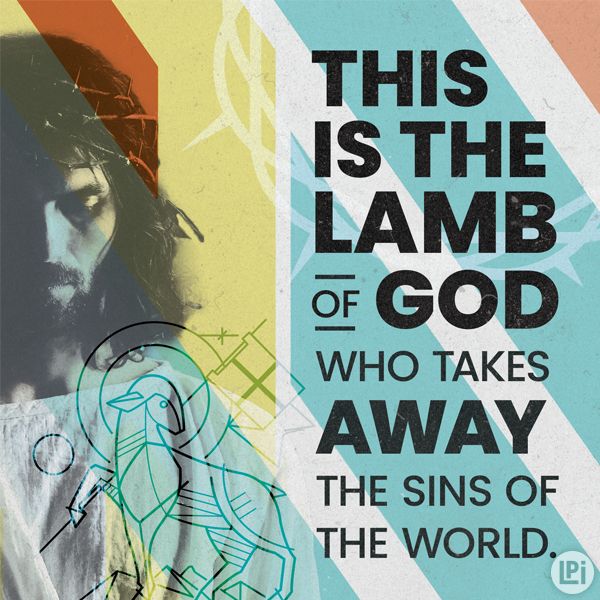During this time of the National Eucharistic Revival, the faithful should take every opportunity to reflect on the Real and True Presence of Jesus. As John the Baptist urges, don’t miss the Messiah in your midst, “Behold the Lamb of God.” For us living in this particular age, the best way to behold the Lamb is to gaze upon Him in the Blessed Sacrament — Eucharist. To encounter His presence — Body, Blood, Soul, and Divinity — in the Mass or Eucharistic Adoration.
A lamb is central and absolutely crucial to the Passover (Exodus 12: 1–13). Hearing John the Baptist refer to Jesus as a lamb would have evoked powerful connections for the Jewish people, particularly the lamb’s role in their salvation. While it would take years for the fulfillment to take place upon the Cross, at that moment, with those powerful words, John testified to Jesus’ true identity — the spotless victim whose blood would redeem the world. As John baptizes the Lord and recognizes this is the one for whom he had been preparing the way, these prophetic words affirm the redemptive sacrifice Christ would make. The Lamb, whose Precious Blood would do far more than the blood put on the doorposts and the lintel at the first Passover in Egypt. This Lamb would open heaven and offer salvation from the plague of eternal death.
John testifies to Jesus as the Messiah, as the Anointed One, the Christ, as he “saw the heavens torn apart and the Spirit descending like a dove on him. And a voice came from heaven, “You are my Son, the Beloved; with you I am well pleased” (Mark 1:10b-11). How does Jesus refer this truth to you in your daily life? How do you witness and testify, as to prepare the way, for others to come to know and believe?
Jesus is the Lamb born to take away the sins of the world. Not only our original sin through our Baptism but also to extend His mercy upon us, again and again, through the Sacrament of Reconciliation. “The sin of the world” also refers to the consequences of our personal sins, and this “expression can also refer to the negative influence exerted on people by communal situations and social structures that are the fruit of men’s sins” (CCC 408). Many wrongly believe their sin affects only themselves, but as the Mystical Body of Christ, our actions, words, and, yes, our sins ripple throughout the entire Church.
Pope John Paul II explained it this way: “By virtue of a human solidarity which is as mysterious and intangible as it is real and concrete, each individual’s sin in some way affects others. There is no sin, not even the most intimate and secret one, the most strictly individual one, that exclusively concerns the person committing it. With greater or lesser harm, every sin has repercussions on the ecclesial body and the whole human family. In this sense every sin can be considered a social sin.” (Reconciliation and Penance, 2)
In this new year, make resolutions to behold the Lamb with more time in Adoration, or arrive early to Mass so you can pray and prepare your heart to receive the Eucharist. Also, as you add new events and appointments to your calendar, include regular participation in the Sacrament of Reconciliation — Confession. This unselfish act for the good of the entire Church is the best way to ensure the Spirit of the Lord remains with you.
— Allison Gingras
PRAYER
Lord, help me to behold your presence in my life better,
especially your True and Real Presence in the Eucharist.
Thank you for taking on the sin of the world,
so I could have the precious hope
of being with you forever in heaven one day.

Comments
There are no comments yet - be the first one to comment: